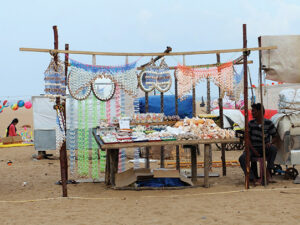Registered with the Registrar of Newspapers for India under R.N.I 53640/91
Vol. XXX No. 21, March 1-15, 2021
Archives: Vol. XXX No. 21, March 1-15, 2021
Why not make the Covid vaccine available to everyone?
by The Editor
For the past few weeks, the daily statistics as regards the virus indicate that the city has entered a deadlock phase in its battle. True, the numbers are not alarming when compared with metropolises such as Mumbai and even less so when you compare them with figures from abroad, but it cannot be denied that the scourge is holding its own in the city. This is despite the best efforts of the frontline health workers. What should the city be doing to gain further ground against the Corona virus?
There can be many reasons for the figures stabilising. There is increased use of public transport, schools and colleges are partially functioning and places where the public gather are open. Social events such as weddings and other celebrations are regularly being held and while these are restricting numbers at least on paper reality indicates that people are thronging such events. All of this cannot be helped – humankind is sociable by nature. Moreover, while it may be convenient for the well off to grumble that the crowds are back, for those on the road it is not out of choice but compulsion – they need to get around if they have to keep the home fires burning. It is seen in daily reports that a significant chunk of new cases is contributed by those coming into the city. There is no way this can be prevented – most of the migrants are employed here. All championing of lockdowns and insisting of physical distancing is only by the affluent. The less well-off cannot afford such luxuries. The initial few weeks of lockdown was essential chiefly for the administrative machinery and infrastructure to gear up but now such measures have no meaning. It is far better to focus on battling the disease than shying away from it.
Unlike elsewhere in India, Chennai’s civic officials have been remarkably nimble in identifying clusters and tackling them. The city and the State have ranked high on testing as well, preferring to go for the more rigorous RTPCR tests. Therefore, this is not one of our concerns. On the other hand, we seem to be ineffective when it comes to dealing with those who do not wear masks. This is really a serious issue – a quick survey of public spaces, shops and various modes of surface transport indicates that most people do not wear masks and even if they did, wear them wrongly. This has to change for masks remain the cheapest and most effective way of keeping the virus at bay.
Secondly, the city has to get going on its vaccination drive. There is really no reason as to why the current batch of vaccines has to be made available only to health and other frontline workers. There was sound logic in such prioritisation but when those whom it was meant to benefit do not take to it, what can be done? Statistics indicate that there has been poor response from those for whom the first batch of vaccines were intended. If the demand for the first dose was poor, it has been abysmal for the second. Under such circumstances, why restrict the availability to just doctors, nurses, other medical staff and civic workers?
With more people vaccinated we can at least ensure that the virus when it attacks will be less lethal and that means fewer deaths, and probably less people getting infected. This will eventually lead to a further reduction in cases. Ground reality seems to indicate that the good Indian ‘jugaad’ has already kicked in– reports are doing the rounds of how influential people not in any way connected with healthcare or civic services are managing to get ahead in the vaccination queue. This however is not a bad thing for the vaccine has to start reaching more people. Why not then throw it open to all?
Marina’s proposed Smart Carts turn problematic
by our Special Correspondent

The Greater Chennai Corporation plans to introduce ‘smart carts’ to the Marina beach. The move is part of a larger beautification plan in line with a 2019 Madras High Court directive to transform Marina Beach into a world-class beach – it aims to regularise the beach vendors by capping the number of smart carts at 900, which will be placed in designated vendor zones throughout the area. Given that the Marina is said to harbour roughly 2000 vendors under the current system, the ‘smart cart’ plan has predictably received strong pushback from the thousands who currently depend on the beach for their livelihoods – the drastic move comes at a time when vendors are already under constrained economic circumstances from the pandemic, reeling under a year’s worth of lost revenues.
Our seaside scrub
by A. Rajaram
By forcing us to confine ourselves to the safety of our homes, the Covid pandemic has opened our eyes to the bounty of nature that abounds around us.


